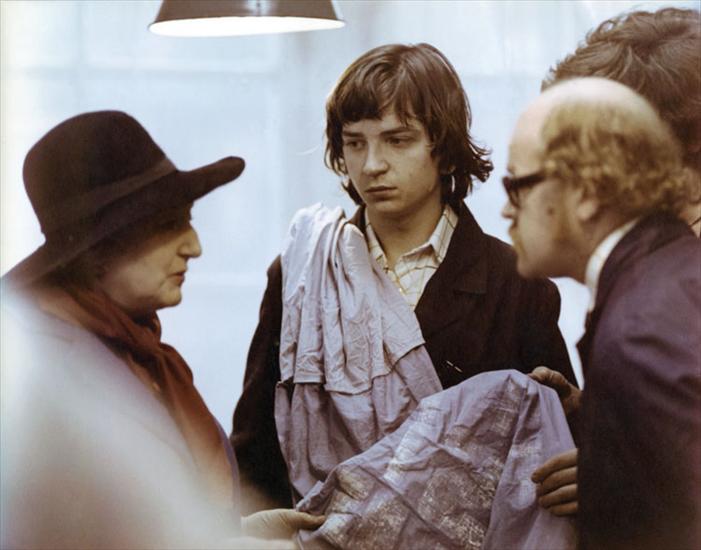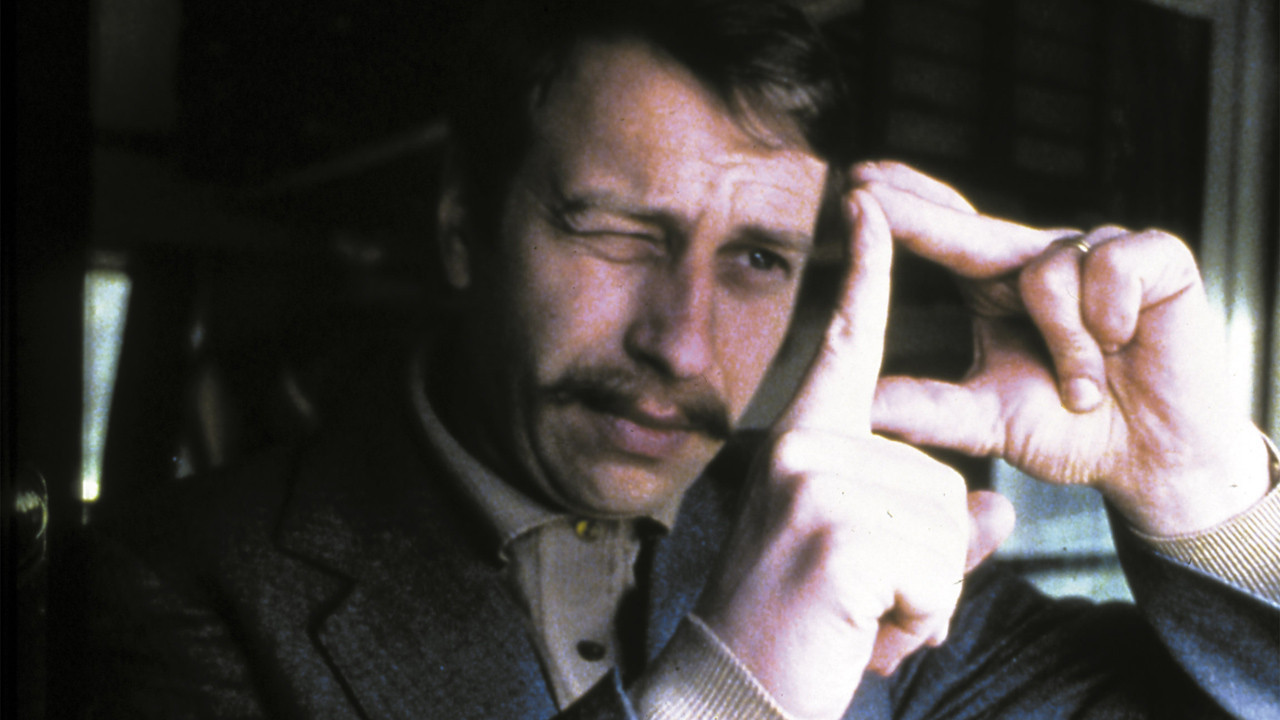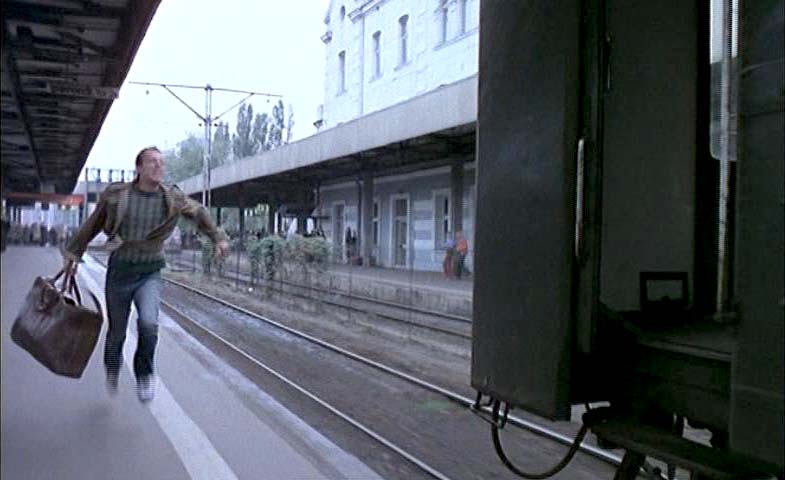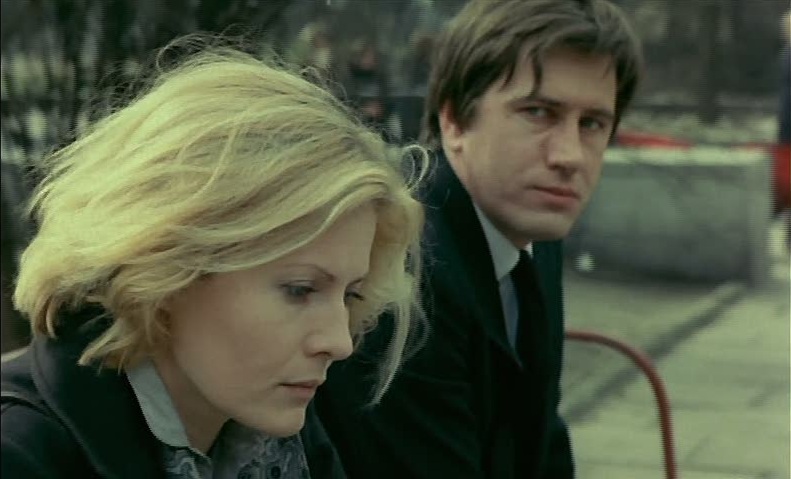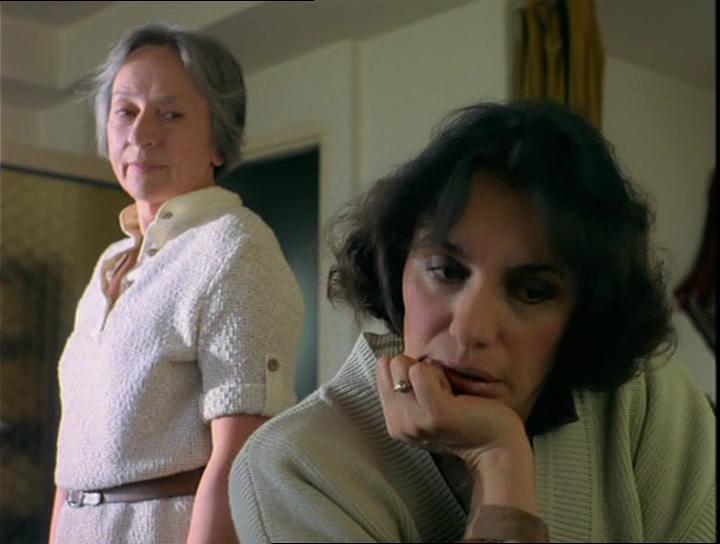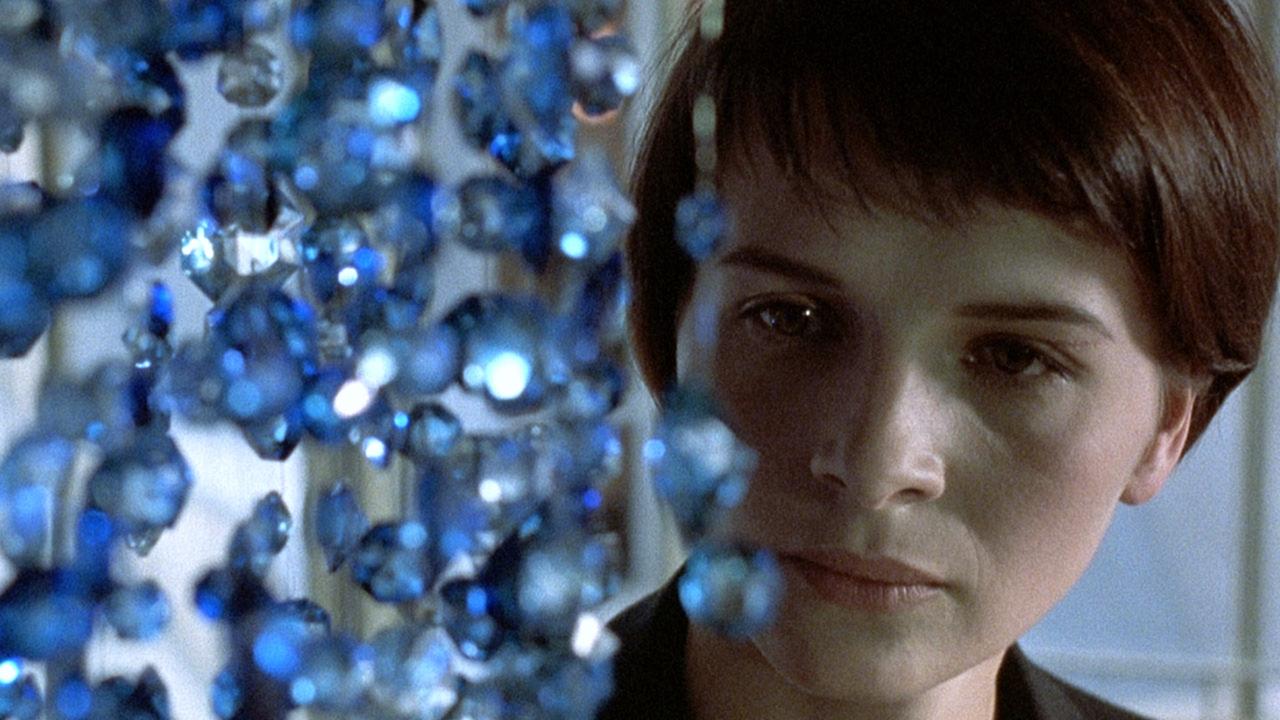
Krzysztof Kieslowski has shaped the cinema of the past 35 years from his days of documentary filmmaking up to his international coproduction’s that would serve as his last testament to the cinema, which he loved and acknowledged throughout his filmography.
From his early television films for Polish television to European art house fame, his cinema defined the self-reflexive nature of the filmmaker and the struggles of creating personal art while under the constraints of a Communist government. His exploration of many ideas in modern society from the moral constraints of religion to the power of love and human identity have created singular cinematic experiences on both an aesthetic and intellectual level that has been unparalleled in the past 30 years.
The body of work he and his collaborators have left behind will help to not only define polish cinema but a cinema of unification throughout the world for decades to come.
1. Personel (1975, TV Film)
Personel was Krzysztof Kieslowski’s debut feature film for Polish television after working in the documentary field for years during and after his years at Lodz film school. The story of Romek (played by future Polish director Juliusz Machulski) and his fascination with art leads him to becoming a tailor at his local theater for their opera performances.
Through this behind the scenes look into the theater and inherently the arts themselves, Romek’s romantic notions are shattered and a jarring new reality sets in. This turn of the camera upon the behind the scenes world of the theater is inherently self-reflexive upon the arts themselves (including film) that is handled with great bravado by Kieslowski and radiates his documentary background.
As Romek traverses the world of the theater he encounters people of all ilk’s and when a fellow tailor, Sowa, is fired by a malicious performer he stands up for Sowa and discovers the tribulations of the theater world. This disagreement highlights one of the films strongest representations, the relationship between those who work behind the scenes and the actors.
While specifically involving the theater company within the story Kieslowski is also examining the hierarchical system of on set filmmaking and a phenomenon directly related to feature filmmaking. As stars pull in rank and popularity the behind the scenes crew is ultimately at their mercy and work goes underappreciated even as they are an essential part in creating the final product, the full realization of art.
2. Camera Buff (1979)
Camera Buff marked a turning point in Kieslowski’s career from the realistic docu-style drama’s of Personel and The Scar to a more self-reflexive look on the filmmaking process, censorship in communist Poland, and the exploration of Kieslowski himself and the power of filmmaking through the eyes of the director.
Camera Buff follows Filip (Jerzy Stuhr in his first of many films for Kieslowski), a factory worker for a state run facility who purchases a camera to document his daughters birth and early life. His facilities manager soon asks him to film an upcoming work party as he is the only employee who owns a movie camera and the cinematic possibilities of wielding a camera begin to transform the way Filip views life, the artistic process, and the people around him.
Kieslowski expresses the power of filmmaking while examining the consequences that cinephilia and cinematic viewpoints take upon the filmmaker. Throughout the film Filip uses his short films to create artistic expression, shed light on a misunderstood life, and utilize the power of capturing moving image to help hold memories and create emotional connections.
In the end though, his newfound obsession and cinematic viewpoint on everything in his life drives Filips wife and daughter away from him and causes unintended consequences for subjects of his films.
As he subversively tries to expose Communist Party corruption the party censors his films and he inadvertently gets one of his subjects/supporters fired for one of his films. In the end as he turns the camera on himself the film comes full circle in the life and outlook of a filmmaker and their role in work and society.
3. Blind Chance (1981)
Blind Chance follows Witek (Boguslaw Linda) a Polish med school student, in one of Kieslowski’s most nonlinear story structures that serves as a precursor to the intersecting stories of his later features The Double Life of Veronique and Three Colors: Red. The film starts with Witek screaming “No!” on an airplane followed by the grisly aftermath of an undisclosed event.
Following this the film covers brief points in Witek’s early life that lead up to him impulsively buying a last minute train ticket to Warsaw. At this point the film becomes a play on destiny and the events directly prior to Witek boarding the train change in three different storylines that have significantly different consequences on the events of his life.
Polish Communist Party officials outright suppressed Blind Chance for six years until it was officially released in 1987. Within the three stories at Witek either does or doesn’t make the train to Warsaw, he subsequently becomes a communist, diehard anticommunist, and apolitical student who returns to med school respectively.
As Kieslowski creates a lucid and structurally challenging story on the various facets of chance and consequence within communist Poland, he establishes a cinematic vision that boldly traverses conflicting viewpoints and establishes a unique view of life in Poland.
4. No End (1985)
No End is Krzysztof Kieslowski’s most overtly political film as well as his most pessimistic and served as the first in a long line of collaborations between both co-writer Krzysztof Piesiewicz and composer Zbigniew Preisner both of who lasted through to the end of his career. The film follows Ulla (Grazyna Szapolowska), a translator working in Communist Warsaw as she copes with life after the death of her husband Antek, who was an attorney.
Ulla is living under martial law and having trouble dealing with the death of her husband as he reappears to her constantly and she tries to lose herself in various aspects of her life including work, sex, and her relationship with her son. She refers the wife of her husband’s last client, Darek, to a fellow attorney in order to continue helping Darek to try to get out of jail as he is a member of the Solidarity movement, which is illegal under martial law.
No End is an extremely pessimistic look at the consequences and situations that can come about while living under martial law in a communist nation and the tribulations that can be brought upon an individual that seemingly lead to despair and no reprieve.
This script was the first collaboration between Kieslowski and Piesiewicz who was a lawyer in communist Poland and would lead to a very fruitful professional friendship and many themes that would be established in No End would be revisited throughout their future films.
5. The Decalogue (1988, TV Miniseries)
Kieslowski and Piesiewicz made The Decalogue for Polish Television in 1988, the ten part miniseries is loosely based around the Ten Commandments and they used 9 different cinematographers to give a different aesthetic look to each episode (Piotr Sobocinski DPed both episodes III and IX).
While not directly correlated to or influenced by a particular commandment, Kieslowski and Piesiewicz utilized the commandments as a basis for which to study modern culture and the consequences for each individuals actions within society that has been shaped by these moral rules.
As each story focuses on a different set of individuals and story lines there are certain visual motifs that tie each episode back to one another both in a geographical sense (the high rise housing development) and in a metaphysical sense (the use of milk and the angel character played by Artur Barcis) that tie the entire series into a complex and thoughtful examination of human consequence within modern society.
Praised by critics and filmmakers alike, The Decalogue shot Kieslowski to the forefront of international cinema and got him recognition as a major filmmaking force outside of Poland. To fulfill the contract with the Polish television station for The Decalogue they were also required to lengthen two of the episodes into feature length films which they chose to do with episodes V and VI; subsequently becoming A Short Film About Killing and A Short Film About Love respectively.
